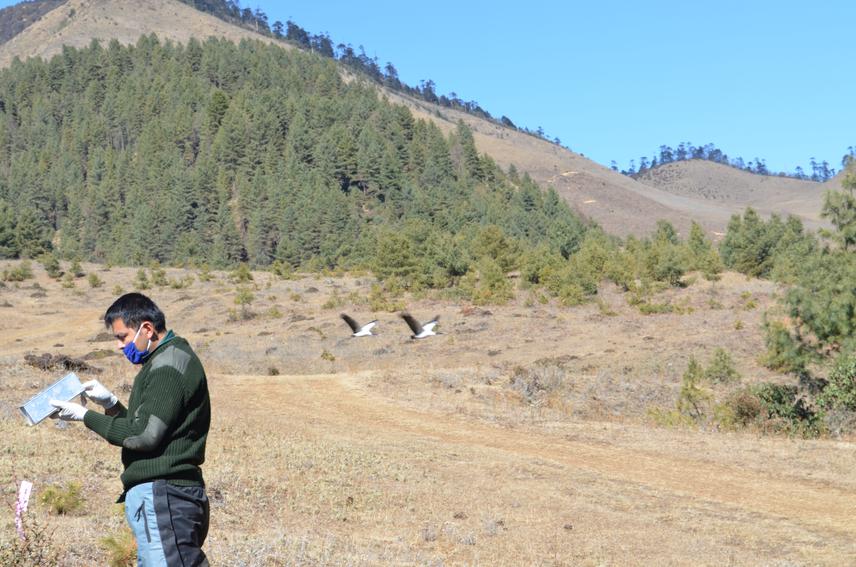Kuenzang Dorji
Other projects
5 Dec 2014
Small Mammals in Small Country: Diversity and Conservation of Small Mammals in High Altitude Wetland of Phobjikha, Wangdiprodrang, Western Bhutan
28 Jul 2020
Socio-Ecology and Conservation of the Endangered Golden Langur (Trachypithecus geei) in Two Landscapes, Trongsa District, Bhutan
29 Mar 2023
Modelling Human-Golden Langur Spatial Interaction Index and Promote Co-Existence Opportunities in the Agricultural Landscapes, Bhutan
The project intends to document bat diversity of Phobjikha Conservation Area (PCA) and change the negative perception of local people on small mammals through religious advocacy.

Crane feeding area.
The conservation project anticipates educating people on importance of small mammals through religious advocacy. The existence of these species was threatened by anthropogenic activities viz grazing, timber extraction, and haphazard use of chemical fertilizer. Moreover, the local people perceives small mammal as vermin to their crops. Though, most of the small mammals were categorized as Least Concern (IUCN, 2006) but they represent most important prey base for endangered bird Grus nigricollis in wetland of Phobjikha which has international importance as potential RAMSAR site in Bhutan.
The project will also document the bats species diversity which was never studied before in Bhutan. The probable species that the project would document are Scotomanes ornatus (LC), Myotis formosus (LC) Myotis muricola (not yet been assessed for IUCN list). Most of the bats are not assessed for IUCN list and catalogue of life which require immediate documentation and proper listing of species for appropriate conservation intervention.
The monks of the valley will be sensitized on value of biodiversity and the synergy between the religion and the environment. As religion has evolved as new and sustainable approach to re-orient society towards recognizing the value of biodiversity and conservation, the religious personnel would conduct religious advocacy for 4,716 people of the valley to cultivate the spiritual values and help to correct the negativism on small mammals.
The species diversity of bats survey will be assessed for Phobjikha Conservation Area which consists of four major types of ecosystems: forest ecosystem, grassland ecosystem, freshwater ecosystem, and agro-ecosystem (RSPN, 2014b). The bat roosting habitats like caves, rocky outcrops and formations, abandoned houses, trees and tree hollows will be scanned in all habitats. Seven each mist nets will be set in four different habitat types in the forest, open grassland, agriculture (structure) and along riparian. The mist netting will be conducted for 3 nights in each habitat. Nets will be checked at least once every 30 minutes to reduce the chance of trapped bats becoming badly entangled. The weight, length of right forearm length age, sex, and reproductive condition will be recorded. Bats will be identified based on external morphology including; fur coloration, body size, forearm length, ear length and shape, body weight etc.
The proposed project would essentially change the negative perception of local people on small mammals and cultivate positive attitude on small mammals, understand the impact of chemical fertilizer and ultimately reduce the use of fertilizers and pesticides and retaliatory killing. The bat species play important ecological roles as prey and predator, seed dispersal, pollination, material and nutrient distribution. Therefore, the project would document bats species diversity and develop comprehensive list of small mammals which would be useful for management of Phobjikha Valley as model wetland at international level.